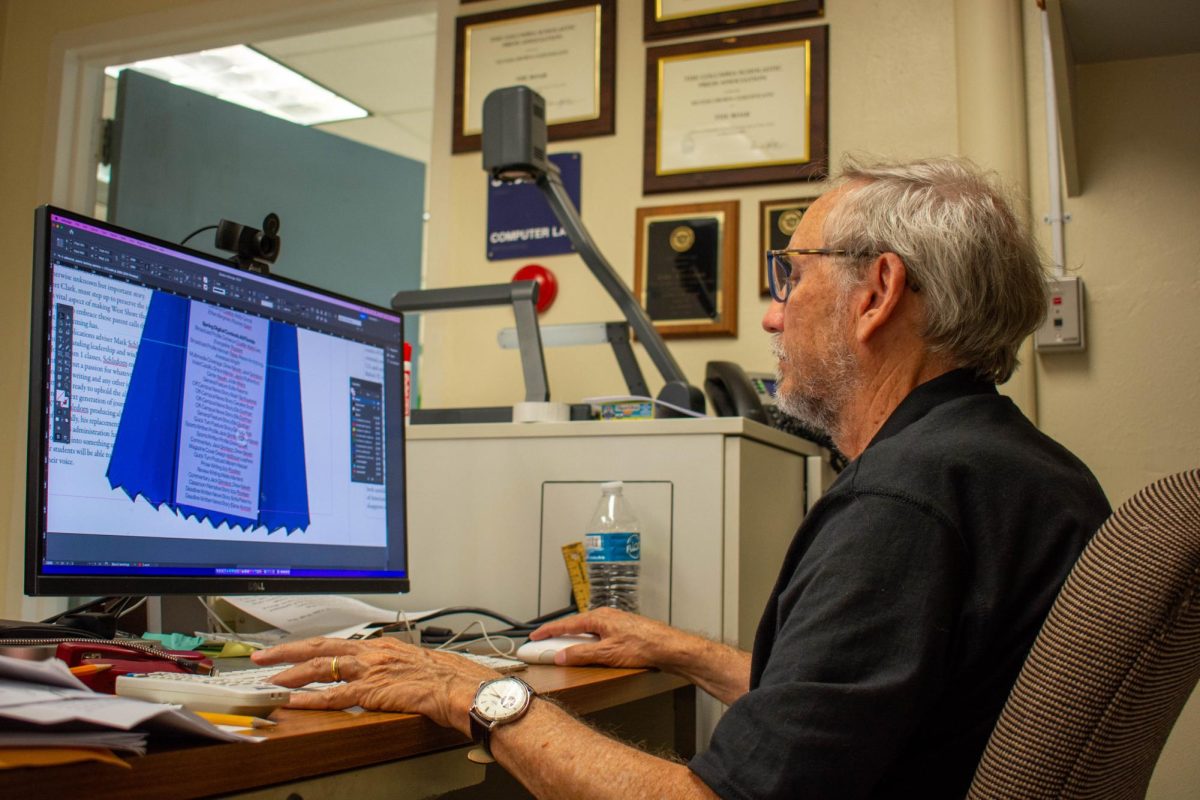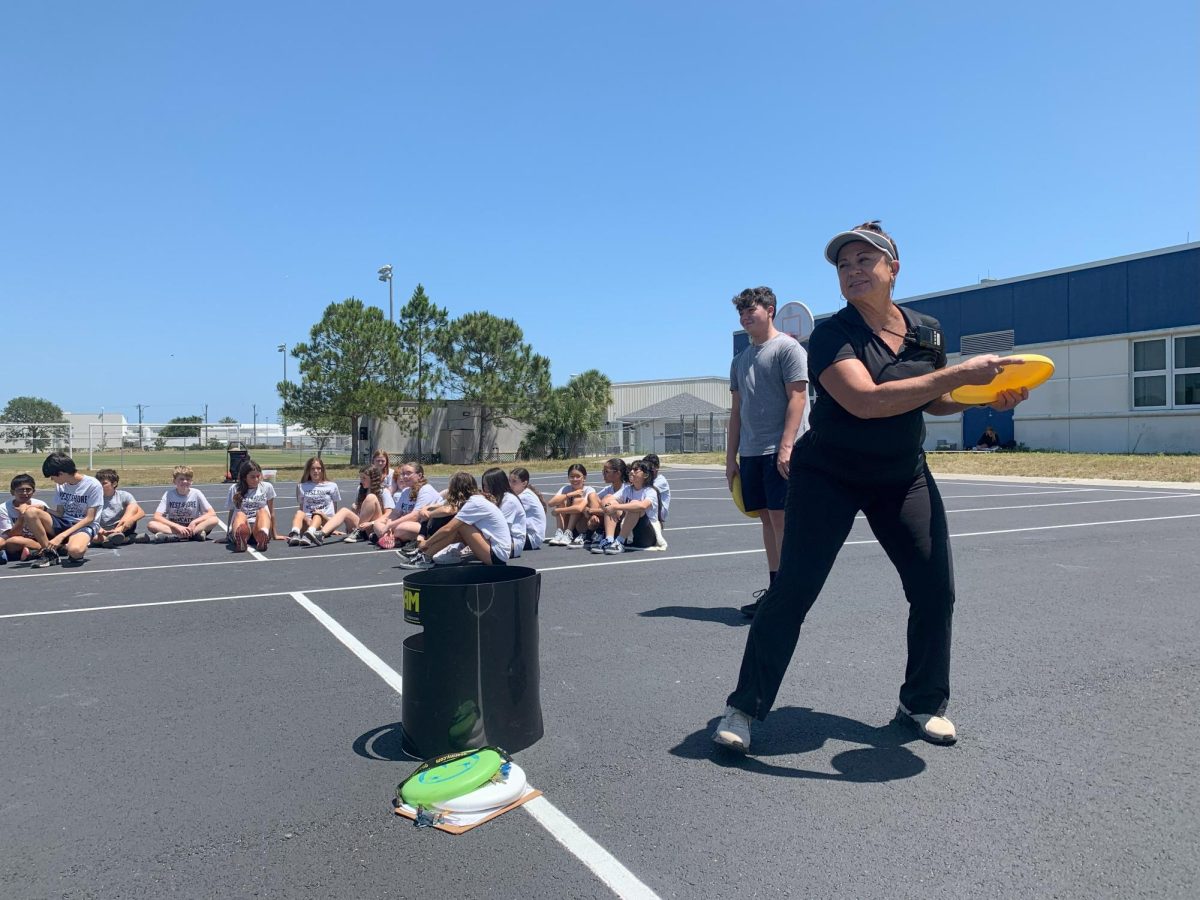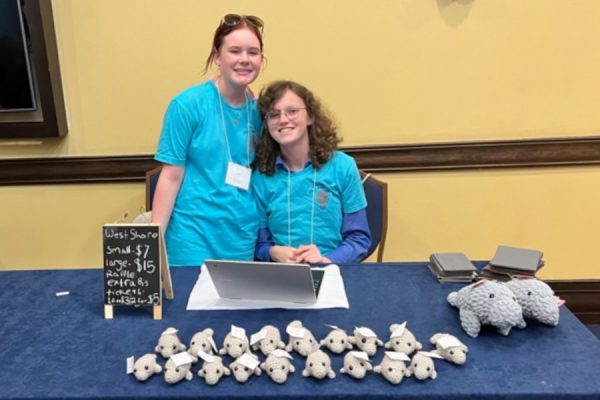Fingerprinting fees cause confusion among parents
October 8, 2018
Fellow travelers bustling around her as she heads home from a business trip, Maureen Nixon dials the number for the district security office rapidly, only five minutes to spare before it closes. After enduring the long lines of new district members collecting badges and the constant volleying of calls from the school to the district, she realized, with only one day left before the trip she had signed up to chaperone, that she hadn’t received one message confirming if her fingerprints had been processed. Following multiple attempts, she finally gets through to speak with a representative who finishes the paperwork then and there.
Nixon was one of six volunteers told by the district that their fingerprints had expired only after they were filling out the paperwork to chaperone the UCF research trip that took place Sep. 20.
This follows a recent policy change that has parents pay an initial cost of $35 and an annual fee of $8 to renew their registered volunteer status, as opposed to the previous payment of $47 every five years. Volunteers who’ve previously paid the five-year fee are able to complete their time before being held accountable for renewal.
Trip organizer Mary Nelson said, “I can see many not remembering to pay the $8.00 renewal fee each year, [making] them ineligible.”
Despite the number of volunteers changing hourly, Nelson reported that enough parents got their statuses renewed by the day before that they were able to carry through with the trip, which escorted 113 students from different research courses to UCF’s library for access to their exclusive databases.
“The problem is that parents aren’t informed their volunteer status has expired and they need to be fingerprinted again,” Nelson said, “so they think they’re current, but their status may have expired two months ago and they have no clue.”
According to a district representative, the change was implemented once they began to retain volunteer fingerprints year-to-year, but the methods of communication haven’t changed.
West Shore activities director Tony Riopelle said, “I’m a volunteer in case I want to do something for my daughter’s school. It’s up to the volunteer to check their status.”
Volunteers are expected to monitor the expiration date of their prints, getting them reprocessed and ran through the background check before they’re needed. If someone doesn’t renew their volunteer status, their prints are deleted and they have to be retaken.
“A solution to the problem would be if the district would send a notice to volunteers letting them know that their volunteer status is about to expire,” Nelson said.
In spite of the difficulties recruiting volunteers, students like senior Sage Borsanyi were unaware of any issue, only finding out after the fact. She expressed frustration at the lack of communication to volunteers.
“It shouldn’t be a complex process for what they’re doing,” Borsanyi said.
Whether or not the policy marks an improvement is really determined by the point at which the parent first registered as a volunteer. If a parent registered as a volunteer in their child’s seventh-grade year, they save money with the new policy. Previously, they would’ve needed to renew their status in their child’s senior year, for a total of $94. Under the new policy, a six-year status would only cost $75. This is a stark contrast to parents that register in their child’s freshman year, who pay $59 now- as opposed to the previous $45- for less time in the system.
“The county appears to be making it very difficult for parents to volunteer,” Nelson said. “[They’re] giving up their time […] so I question why it costs money each year to do so. Maybe someone at the district has an answer for that one.”










